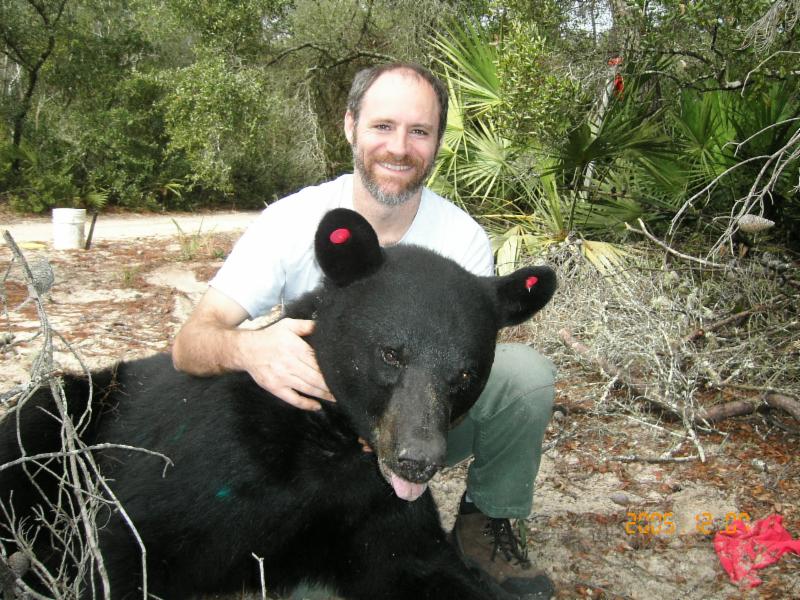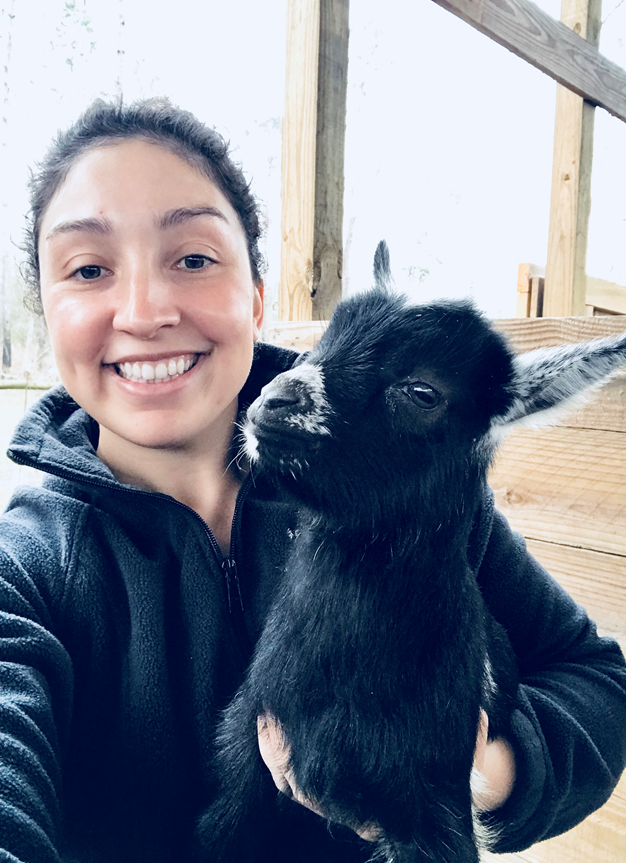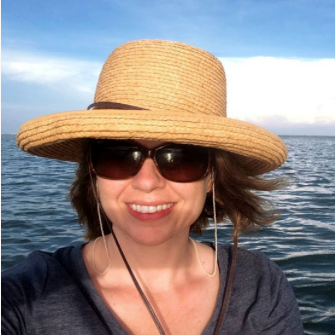|
|
|
|
 |
Director's Corner
Framing
"The conflicts of Lake Okeechobee were some of the most complex that we have encountered yet in our NRLI curriculum. Each person we spoke with brought an entirely new side to the story, and each argument had its own merits. There is no one answer or one solution to the conflicts of this region..."
--William McKinstry & Hannah Brown
(NRLI Class XVIII)
NRLI has visited Clewiston many times over the years. We like the place, the people, and the environment - it is an excellent location for learning about agriculture, Lake Okeechobee, and the connection of both to the Everglades system. Usually we visit a sugar grower and/or consider Everglades restoration efforts - learn how the "re-plumbing" of the Everglades has led to serious environmental challenges east, west, and south. But this time our take was slightly different. We instead focused on seldom heard-from people and communities living, working, and governing south of the lake. How do they see the issues? Each other? What to them is right or wrong, fair or unfair about the debates that rage over moving water east, west, and south? The task for the Fellows was not to evaluate arguments, but to listen for and better understand "Framing," how people and groups talk about the issues, themselves, and each other. Fellows experienced the difficulty of attempting to understand when issues are conflictive and stakeholders multiple and diverse. Our very human tendency is to unconsciously pay more attention to those who are like us--we relate to them without realizing it--and we can react negatively to those who act or think differently ("Mind Bugs"). During this trip to Clewiston, we challenged Fellows to consider their reactions to the different people and groups we spoke with. Who did they find themselves believing and relating to? Who did they find themselves reacting negatively to? Why? In the words of a Project Team member, we challenged them to listen critically to those they agree with and carefully to those they do not. It is a difficult thing to do. With so many people and issues, how do we evaluate "Whose reality counts?" (Robert Chambers, 1997).
~Jonathan Dain, NRLI Director
|
|
|
|
|
|
|
|
Each month, we ask a pair of Fellows to review the session in their own words. This article describes reflections from the point of view of Fellows William McKinstry & Hannah Brown.
|
Fellows' Article
Session 5: Changing Dynamics in Rural Communities & Agriculture
By: William McKinstry & Hannah Brown
While much of our country was getting covered in snow and ice, on this January day alarge portion of our NRLI class headed south, arriving in sunny South Florida with temperatures in the mid-70s. Unlike the South Florida tourist destination we have all become accustomed, the area where we were is the "other" south Florida-a vast and almost treeless complex of canals, waterways and low-lying fields that support one of Florida's largest agricultural industries: sugarcane. Aesthetically the area is as flat as it can be with the only topography being the Herbert Hoover Dike that surrounds Lake Okeechobee. As we headed to our destination at the Roland & Mary Ann Martins Marina and Resort in Clewiston the observant fellow took in great vistas of farm fields as far as the eye can see. The views were only broken by the migrating rain showers and dark columns of smoke rising from pre-harvest sugarcane burns.
Following our lunch on the first day, we were immediately introduced to
one conflict that persists in this region. Tammy Moore came to the area 23 years ago, "got the muck between her toes" and never left. She helped start a group called Guardians of the Glades, who brought concerned citizens and religious groups together to oppose State land purchases in the Glades community, which is essentially the communities of Moore Haven, Clewiston, South Bay, Belle Glade and Pahokee. Their resolve, along with other individuals and community groups we would hear from later, is for the State to fix the inherent problems that lie on all sides of Lake Okeechobee and use the 100,000 acres + of lands the State received from the sugarcane industry 30 years ago before purchasing more lands in the Glades community. When the initial purchase of land occurred 30 years ago, jobs were lost, and the community suffered. If the currently planned land purchases occur, the community could potentially lose 4,000 jobs and the communities may never recover economically. Interestingly the land base of Palm Beach County, one of the wealthiest counties in our country, is mostly a rural agricultural area with economically depressed communities.
We then broke into a lesson about why we frame and how we frame. We learned that people's experiences create different frames, which can lead to biases or "mind-bugs." Following the lesson, we heard from a NRLI alumni panel that also framed the situation in the Glades Community. We heard from Gene McAvoy, a UF/IFAS County Extension Director (among other things); James Erskine, the FWC Everglades Coordinator; and Jacqui Thurlow-Lippisch, a former Sewell's Point City Commissioner and lifelong resident of the coastal communities around Sewell's Point. Each person on the panel provided an overview of their position on the issues. Mr. Erskine spoke on behalf of FWC, explaining that his agency is taking a holistic approach to the restoration of Lake Okeechobee and the Everglades. Mr. McAvoy highlighted notable improvements to farming practices and the development of Best Management Practices within the Glades farming communities. And Mrs. Thurlow-Lippisch has made it her life's work to highlight the water issues from Lake Okeechobee that are plaguing the coastal communities. All agreed that there is no single solution to the issues.
The next morning, we arrived at our meeting room where we learned about Effective Meeting Design and Group Decision-Making processes. It was during these lessons where we were introduced to the Fish Bowl concept and how to create a Process Agenda. We participated in a group role-playing activity that helped us understand what roles we naturally take on in group situations, and how we respond to the roles that others take.
At lunch, we embarked on a field trip that took us through Glades communities and provided opportunities to listen to others frame issues associated with Lake Okeechobee, the Everglades and the communities that depend on the agriculture industry. Our bus trip took use through Clewiston to an incorporated community known as Harlem where most families are employed by the sugarcane industry. From Clewiston we drove along the southeast side of Lake Okeechobee, passing through South Bay, Belle Glade and finally stopping on top of the Herbert Hoover Dike in Pahokee at the City Marina and Campground. From atop of the dike and marina there were grand views of a peaceful Lake Okeechobee, which made the complex issues somewhat surreal for some fellows. There we listened to JP Sasser, former Mayor of Pehokee, who further brought to our attention the plight of the small towns as well as the remarkable things happening and the wonderful residents who make up the growing Glades communities. These towns where once divided, but because of the fear and misinformation about the communities the towns have come together. Even one of the big sugar companies teamed up with the Seminole and Miccosukee Tribes to prevent the State from purchasing sugarcane fields. He told us that some environmental groups are not worried about the people of the area and simply want the sugarcane industry to leave.
Following this discussion, we head south back to Belle Glade, where we met up with members of the Sierra Club. Diana Umpierre spoke first. She presented the restoration plans for the greater Everglades ecosystem, which include capturing water "going to tide" and sending it to the Everglades. She also addressed concerns that other groups have been messaging information that is dividing the communities. She showed us a fake ad campaign that included fake Facebook posts from environmental groups. She saw the ad as a way to smear all environmental groups advocating for Everglades protection. In 2016 they recognized a needed to work more closely with citizens of the Glades and opened an office in Belle Glade so they could be in the community to better serve the people and make progress with environmental improvements. After her talk Patrick Ferguson introduced Kina Phillips who spoke about her campaign to have the sugar companies reduce or eliminate pre-harvest sugarcane burning around sensitive areas in the communities like schools. As a woman whose family is integrally involved with sugarcane farming, she explained the situation and gave heartfelt examples of the health concerns within the communities. Patrick explained that other places in the world incorporated technologies that reduce or eliminate the need for pre-harvest burning and that the materials (aka: trash) being burned could be put to better use as commercial biomass products. He also insisted that the Sierra Club has been pegged with an unjust label of trying to end the sugarcane industry, which was entirely untrue.
We then headed back to Clewiston to meet our final guest speakers. We had the pleasure of hearing from Janet Taylor, a retired law enforcement officer and former County Commissioner; Mali Gardener, the Mayor of Clewiston; and Amy Perry, the Sustainable Agriculture Fire Education (S.A.F.E.) Communities Coordinator and a 5th generation sugarcane famer. Ms. Gardener addressed concerns and ideas that majority of the pollutants are coming into Lake Okeechobee from the north and the sugarcane industry is not to blame for potential pollution issues that are arising frequently in the estuaries of coastal communities. The Glades community firmly believes that a healthy lake is a healthy community and studies have indicated that the lake water released into the canals that led to the coast is actually clean water because the lake itself cleans the "dirty" water from the north. Ms. Perry passed out a brochure about pre-harvest sugarcane burning. S.A.F.E indicates the burning is a necessary process for sugarcane harvesting. Other countries are not abandoning pre-harvest burns and there is little to no commercial value of the trash that is burned. Furthermore, the brochure claimed that the Glades communities enjoy some of the best air quality in Florida. Ms. Taylor helped start the Glades Lives Matter group which was formed when they realized that "if you are not at the table, you are on the menu." The group interacts with State legislators and other community leaders to promote and retain the sugarcane industry because, as she put it, if agriculture leaves the towns, the towns will die. That night we all enjoyed a wonderful dinner at the Roland Martin Marina Restaurant, where spirits were high, and everyone enjoyed the evening.
The conflicts of Lake Okeechobee were some of the most complex that we have encountered yet in our NRLI curriculum. Each person we spoke with brought an entirely new side to the story, and each argument had its own merits. There is no one answer or one solution to the conflicts of this region, however, we did see improvement for better communication between groups as everyone seemed to prioritize the goals of a healthy lake and a thriving Glades community.
|
|
Spotlight on Class XVIII Fellows
 Brian Scheick Brian Scheick
Bear Research Program Coordinator
Fish and Wildlife Research Institute, Florida Fish and Wildlife Conservation Commission
Brian has worked on bears for the FWC since 2001 but was promoted to bear research program coordinator this past December. During his time with FWC, he's been involved in many aspects of black bear ecology, including two statewide abundance estimates, two studies of reproduction and demographics, the response of relocated nuisance bears, bears in the urban-wildlife interface, habitat use and movements in and around Camp Blanding, and estimating statewide distribution and habitat. Brian has also been involved with the 2011 biological species review that recommended removing bears from state listing, the 2012 black bear management plan, and commenting on habitat management plans, and various road and other developments. A native of Massachusetts, Brian graduated from the University of Florida's Wildlife Ecology and Conservation program after studying bears in Okefenokee NWR and Osceola National Forests. He received his Bachelor of Science degree from the University of Vermont.
When he's not thinking about bears, he enjoys paddling, hiking, and reading nonfiction history, but spends most of his free time trying to understand and keeping up with his 5-year old daughter, Greta.
 Yesenia Escribano Yesenia Escribano
Environmental Consultant
Office of Agricultural water Policy, Florida Department of Agriculture and Consumer Services
Yesenia Escribano grew up in the beautiful island of Puerto Rico and has always been drawn to nature. At a young age she decided she was determined to work in protecting and restoring natural resources. Yesenia earned a B.S. in Geography and an M.S. in Geographic Information Systems (GIS) from Florida State University, with concentrations in environmental studies and environmental applications of GIS.
Yesenia began her career in the environmental sector at the UF Fort Lauderdale Research and Education Center in the Wildlife and Ecology Department as a GIS Remote Sensing Technician in support of applied research and monitoring focused on crocodilians, invasive reptiles, threatened and endangered species, and climate change modeling. She has also worked at the Northwest Florida Water Management District as an Assistant Regulatory Administrator with the Consumptive Use Permitting program and the Department of Environmental Protection (DEP) as an Environmental Consultant with the Basin Management Action Plan group. Currently, Yesenia is an Environmental Manager in FDACS Office of Agricultural Water Policy (OAWP), Water Policy and Planning (WPP) section where she focuses on water-supply, water-quality, and regulatory issues that affect agriculture. She works closely with OAWP field staff and partners at the Water Management Districts and DEP to coordinate on regulatory requirements, comment on technical documents, and review models related to agricultural production, agriculture acreage, water use, and water quality impacts.
Yesenia lives in Tallahassee, Florida and when she is not working she enjoys cooking, working out, watching foreign films with captions, visiting family in Puerto Rico and traveling to other countries.
 Cyndi Fernandez Cyndi Fernandez
Assistant Director
Conservation Florida
Cyndi is a Florida native who is passionate about her work. She is a communications specialist with broad nonprofit management and organizational development experience. She holds degrees in graphic design and journalism. Before joining Conservation Florida, she worked for the Whidbey Camano Land Trust and the Poynter Institute for Media Studies. She enjoys spending her free time exploring Florida's wild places.
|
|
You're Invited!
NRLI Class XVIII Graduation
Dear NRLI alumni and friends of the NRLI program,
You and your guest/family are cordially invited to attend the graduation ceremony of Class XVIII of the
Florida Natural Resources Leadership Institute
to be held
Friday, April 12, 2019 from 5:30 to 9:00 p.m.
at
20 North Main Street
Gainesville, Florida
Reception: 5:30 to 6:30 p.m.
Dinner: 6:30 to 7:30 p.m.
Remarks & presentation of awards & certificates: 7:30 to 9:00 p.m.
*Please RSVP no later than March 11.*
|
|
Class XVIII Fellows
Katherine Allen,
County Extension Director; Extension Agent IV-Family, Youth, and Community Sciences, UF/IFAS Extension
Vanessa Bessey,
Environmental Administrator, Florida Department of Agriculture and Consumer Services, Office of Agricultural Water Policy
Rena Borkhataria,
Research Assistant Professor, Wildlife Ecology & Conservation, Everglades Research and Education Center, University of Florida/IFAS
Hannah Brown,
Communications Manager, PhD Student, School of Natural Resources and Environment, University of Florida
Amy Copeland, South Region Land Manager
, St. Johns River Water Management District
Yesenia Escribano,
Environmental Consultant, Florida Department of Agriculture and Consumer Services, Office of Agricultural Water Policy
Cyndi Fernandez,
Assistant Director, Conservation Florida
Ashleigh Fountain,
Biologist-Planning Technical Lead, Coastal Navigation Section, U.S. Army Corps of Engineers, Jacksonville District
Jay Garcia,
Wildlife Biologist, U.S. Forest Service
Derrell Jones,
Captain, Florida Fish and Wildlife Conservation Commission
Catherine Kennedy,
Senior Wildlife Assistance Biologist, Florida Fish and Wildlife Conservation Commission
William McKinstry,
Land Management Program Manager, Suwannee River Water Management District
Benjamin Melnick,
Deputy Director, Division of Water Resource Management, Florida Department of Environmental Protection
Lourdes Mena,
Fish and Wildlife Biologist, U.S. Fish and Wildlife Service
Ashley Pardee, Assistant, Wetland Preserve LLC
Chad Roberts,
Director of Marketing, Florida Farm Bureau Federation
Brian Scheick,
Assistant Research Scientist, Florida Fish and Wildlife Conservation Commission
Karen Schlatter,
Associate Director, Colorado River Delta Program, Sonoran Institute
Wesley Seitz,
Public Hunting Areas Biologist, Florida Fish and Wildlife Conservation Commission
Stacey Simmons,
Environmental Specialist III, Florida Department of Agriculture and Consumer Services, Office of Agricultural Water Policy
Jessica Sutt,
Wildlife Refuge Specialist, Southwest Florida Gulf Coast Refuge Complex, U.S. Fish and Wildlife Service
Lily Swanbrow Becker, Climate
Adaptation Coordinator, Florida Fish and Wildlife Conservation Commission
Erica Waller, Environmental Educator
Class XVIII Schedule
| Dates |
Topic |
Location |
| August 22-24, 2018 |
Coastal Erosion & Community Resilience |
Cedar Key |
| September 26-28, 2018 |
Endangered Species: The Future of the Florida Panther |
Immokalee |
| October 17-19, 2018 |
Fisheries Management: Red Snapper |
Destin |
| November 14-16, 2018 |
Sea Level Rise: Threats to & Solutions for Urban Areas |
Miami |
| January 23-25, 2019 |
Changing Dynamics in Agriculture & Rural Communities |
Clewiston |
| February 20-22, 2019 |
Water Quality: Springs & Agriculture |
Dowling Park |
| March 20-22, 2019 |
Wildlife Corridors |
Keystone Heights |
|
April 10-12, 2019
|
Graduation & Practicum Presentations |
Gainesville |
|
|
|
|